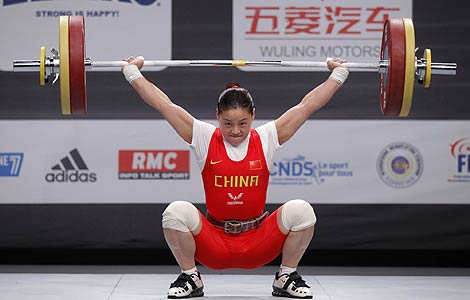A good turn deserves another
Updated: 2011-11-10 07:54
By Men Jing (China Daily)
|
|||||||||
After the back-slapping bonhomie of the recent G20 summit now it's time for some 'you scratch my back I'll scratch yours'
Before the recent G20 summit in Cannes, France, many Europeans were hoping that China would announce its decision to help the eurozone out of the debt crisis. But the summit is over and Europe has not received such a promise. So what are the prospects for relations between the European Union and China and what might happen in the coming months?
After years of talk about China as a rising power, it seems that against the background of economic and financial crisis in both the United States and the EU the status of China has been consolidated and it has become the most important player in the G20. President Hu Jintao was the leader other leaders most wanted to meet, and many European leaders competed with one another in order to get a chance to talk with him.
While China never made any concrete promise to help the EU bailout plan, it also never said that it would not help Europe. Indeed, on the contrary, before the G20 summit, Premier Wen Jiabao, on several occasions, expressed the China's willingness to cooperate with the Europeans during this difficult time.
However, there is a Chinese saying that is applicable to the current situation of the EU and China: a lean camel is bigger than a horse. As a group of developed countries with an average per capita income of more than 23,000 euro ($32,000), the EU living standard is much higher than that of China. It is ridiculous that rich European nations have their begging bowls out and want money out of the pocket of China, whose per capita income is only about $4,000.
While help may be necessary, Europe needs to behave in a responsible way and also find its own solutions. China did pledge more help to other developing countries at the summit, in particular, the least developed countries. This was perhaps a reminder to the Europeans that there are others who are poorer and who are more in need of help.
Hu also mentioned that China's import volume is expected to reach $8 trillion in the next five years. As the largest trading partner of China, the EU may have a good chance of increasing its exports to the Chinese market. If so, this will help create more job opportunities in Europe.
While there is much discussion about whether, and if so, how, China will help Europe, it should be pointed out that the China-EU relationship is based on mutual benefit and equality. In other words, China's willingness to help Europe is directly linked to what it will get in return and how China-EU relations will develop further. So, if they want to win Chinese investment and financial support, the Europeans need to make the deals attractive. Whether China will buy European Financial Stability Facility bonds or not will depend on what terms Europe offers China and how risky it will be to invest in the bonds. And while it might be difficult for the Europeans to grant market economy status to China and to lift the arms embargo any time soon, it is certainly feasible for the EU to allow more high-tech exports to China.
But the big question at the heart of high-tech exports to China and Chinese investment in Europe, is: how much do the EU and China really trust each other?
Despite the development of bilateral relations over the last 36 years, mutual trust is still wanting. Therefore trust building is a necessary step for enhancing bilateral relations.
So it is not hard to foresee that there will be even more visits and exchanges at all levels between the EU and China in the coming months. Mutually beneficial deals will be reached and bilateral cooperation will be further strengthened.
The author is InBev-Baillet Latour Chair of EU-China Relations at the College of Europe, Bruges, Belgium.
(China Daily 11/10/2011 page8)











